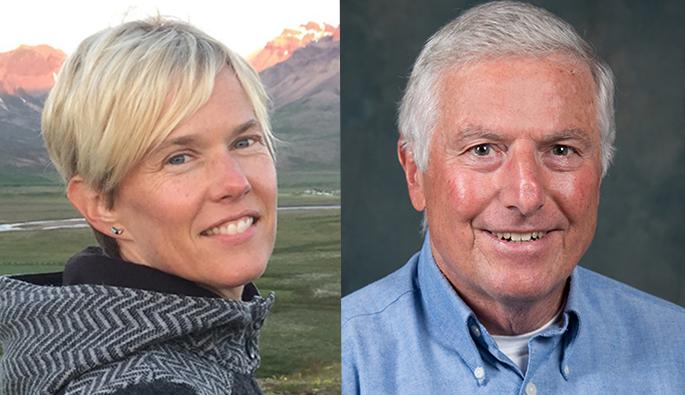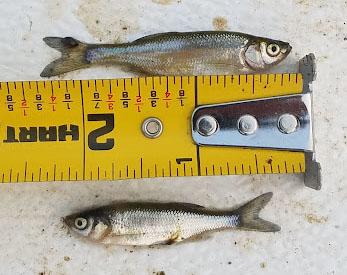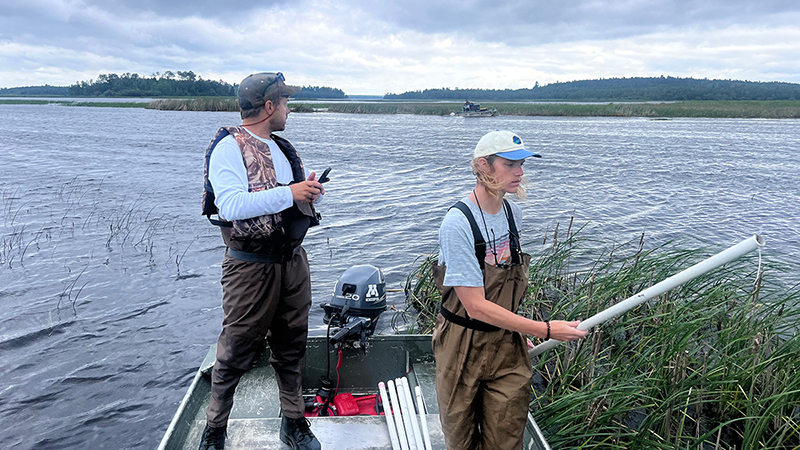Duluth, Minn. — Fisheries and aquaculture experts from Minnesota Sea Grant and colleagues from the MNSG-led Great Lakes Aquaculture Collaborative will host a session on Fish Farming in the Great Lakes Region: Hatcheries, Private Farms, and Partnerships, and give presentations on invasive cattails and Golden Shiner bait production at the American Fisheries Society National Meeting in Grand Rapids, Michigan, August 23, 2023.
“The purpose of the fish-farming session is to create a shared understanding of aquaculture and its complexity and give examples of how the aquaculture industry, government, and academia can work together,” said Don Schreiner, Minnesota Sea Grant fisheries specialist and presenter. “We also hope to identify opportunities to develop a sustainable aquaculture industry in collaboration with state and tribal entities.”
Five case history presentations will demonstrate effective cooperative aquaculture and showcase ongoing work of fisheries biologists and managers and Great Lakes Sea Grant extension educators. The session presentations will conclude with a discussion among presenters and audience members.
Amy Schrank, Minnesota Sea Grant extension program leader and a fisheries and aquaculture extension educator, will present an overview of the Sea Grant Great Lakes Aquaculture Collaborative (GLAC) and how Sea Grant’s work has advanced aquaculture in the region.
“Feedback and suggestions from regional aquaculture producers, who participate on GLAC’s state advisory groups, have guided several of our GLAC activities,” said Schrank. “GLAC has hosted three annual Great Lakes Aquaculture Days events including a fish-health workshop in 2022, and we’re planning work to increase connections among the aquaculture community in the Great Lakes region and increase awareness about aquaculture among natural resources managers, legislators, and the public.”
Increasing in-state production of Golden Shiner bait is the focus of Schreiner’s presentation. A goal of this demonstration project is to develop methods to rear this important bait minnow year-round in a state known for harsh winters.
“The Golden Shiner presentation will highlight building collaborative partnerships that bring together participants from the bait industry, Minnesota Department of Natural Resources, Central Lakes College in Brainerd, Minnesota, and the University of Minnesota,” Schreiner said. “Golden Shiner is a lucrative bait minnow with high angler demand, but limited supply.”
Project crew members prepare to sample cattails. Minnesota Aquatic Invasive Species Research Center Gradate Fellow Mike Tuma left, and Dylan Dahn, are both part of an invasive cattail project led by Minnesota Sea Grant Extension Program Leader and Fisheries and Aquaculture Extension Educator Amy Schrank. Image credit: Amy Schrank/MNSG.
In a separate session, Schrank will present her work on the effects of mechanical removal of invasive hybrid cattails, which may benefit nearshore ecosystems by improving water quality and increasing plant and fish diversity.
The presentations will be part of the 153rd Annual Meeting of the American Fisheries Society, August 20-24, 2023, in Grand Rapids, Michigan. This meeting convenes fisheries professionals from across North America and countries throughout the world. This year's theme is Adaptive Approaches to Understand and Manage Changes in Fisheries.
FUNDING:
- Funding for Schrank’s cattail project was provided by the Minnesota Environment and Natural Resources Trust Fund as recommended by the Minnesota Aquatic Invasive Species Research Center and the Legislative-Citizen Commission on Minnesota Resources.
- The Golden Shiner project was selected for funding by the Minnesota’s Legislative-Citizen Commission on Minnesota Resources and funded by the Minnesota Environment and Natural Resources Trust Fund.
- The Minnesota Sea Grant-led Great Lakes Aquaculture Collaborative is funded by the National Oceanic and Atmospheric Administration and seeks to create a regionwide group to foster relevant, science based initiatives that support aquaculture industries in the Great Lakes region that are environmentally responsible, competitive, and sustainable.
ADDITIONAL INFORMATION:
- Minnesota Sea Grant Invasive Cattail-Dominated Shorelines project
- Minnesota Sea Grant Increasing Golden Shiner Bait Production in Minnesota project
- Minnesota Sea Grant Fisheries and Aquaculture Program
- Sea Grant Great Lakes Aquaculture Collaborative
CONTACT:
- Amy Schrank, extension program leader and fisheries and aquaculture extension educator, Minnesota Sea Grant, University of Minnesota and University of Minnesota Duluth.
- Don Schreiner, fisheries specialist, Minnesota Sea Grant, University of Minnesota and University of Minnesota Duluth.
- Marie Thoms, communications manager, Minnesota Sea Grant, University of Minnesota and University of Minnesota Duluth.


